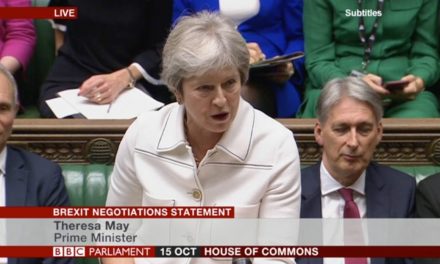The EU already provides for rules on obtaining evidence in criminal matters. The existing instruments are based on the principle of mutual assistance such as the Convention on Mutual Assistance in Criminal Matters and its Protocol, as well as on the principle of mutual recognition such as the Framework Decision on the European Evidence Warrant.
The European Evidence Warrant (EEW) was adopted in December 2008 and all Member States must transpose the framework decision by January 2011. The EEW is a judicial decision issued by a competent authority of a Member State in order to obtain, from another Member State, evidence that already exists and is directly available in the form of objects, documents and data for use in criminal proceedings. A European Evidence Warrant cannot be issued for evidence which does not already exist such as interviewing suspects or witnesses, or for the purpose for obtaining bodily material, such as DNA samples or fingerprints as these types of evidence are not directly available without further investigation. An EEA issued by a competent authority in one Member State will be directly recognised and enforced by a competent authority in another Member State, without any further internal review. Hence, the possibilities of refusing to recognize or execute the EEW are very limited. A Member State may only refuse to execute the EEA on the grounds that the act on which it is based does not constitute an offence under its national law (dual criminality) if a search or seizure is required for its execution and if it is not related to the list of offences set out in the framework decision. Hence, the EEA could result in miscarriages of justice. British citizens might be subject to investigations in Britain, ordered by foreign authorities, for something that it is not a crime in this country.
Last June, the Commission adopted a Communication entitled “An area of freedom, security and justice serving the citizen” contributing to the discussions on the new EU Justice and Home Affairs programme for the next five years, the so called Stockholm programme. In this Communication, the Commission called for a comprehensive European framework for obtaining evidence in cross-border cases which should include a “real” European evidence warrant to replace all the existing legal instruments, automatically recognised and applicable throughout the EU as well as a European legal framework on electronic evidence.
As above-mentioned, the existing instruments on obtaining evidence in criminal matters in the EU are based on different principles, i.e. mutual assistance and mutual recognition. However, according to the Commission all types of evidence used in criminal matters should be the subject to mutual recognition between Member States. Hence, requests for assistance will be replaced by orders, there will be standard forms for issuing such orders and fixed deadlines to execute them.
On 11 November the European Commission adopted a Green Paper on obtaining evidence in criminal matters from one Member State to another and securing its admissibility. The Commission has pointed out that the existing legal regime on obtaining evidence in criminal matters is too fragmented therefore is considering replacing it by a single instrument based on the principle of mutual recognition covering all types of evidence.
According to the Commission’s plans the scope of application of such instrument would be wider than the EEA as it would also cover evidence that is directly available but does not already exist, such as witnesses’ statements, interception of communications and monitoring of bank accounts as well as evidence that already exists but is not directly available without further investigation, such as analyses of existing objects and DNA samples or fingerprints. The new instrument would be automatically recognised and applicable throughout the EU. Obviously, the Commission would establish deadlines for enforcement as well as would limit the grounds for refusal.
Such instrument, that the Commission is planning to propose, would have even more far reaching implications than the EEA as it would cover all types of evidence and, probably the application of the principle of dual criminality would be very limited.
Moreover, the Commission has noticed that the existing instruments on obtaining evidence in criminal matters provide for rules intended to ensure the admissibility of evidence obtained in another Member State, nevertheless, the Commission has stressed that “these rules only approach the issue of admissibility of evidence in an indirect manner as they do not set any common standards for gathering evidence.” Consequently, the Commission wants to introduce common standards for gathering evidence in criminal matters. Obviously, the European Commission has its eyes on the new legal basis introduced by the Lisbon Treaty.
The Lisbon Treaty enshrines the principle of mutual recognition of judicial decisions in criminal matters. However, whereas, presently, measures based on the principle of mutual recognition of judicial decisions are adopted by unanimity in the Council and through the consultation procedure, under the Lisbon Treaty they will be adopted through the co-decision procedure and by QMV in the Council. Therefore, it will be easier to adopt such measures which might lead to extremely injustice situations such as the European arrest and evidence warrants.
The Lisbon Treaty confers to the EU more powers over criminal justice matters. It specifically provides for the EU’s competence to adopt directives establishing “minimum rules” on mutual admissibility of evidence between Member States. Such measures will be adopted by QMV therefore the UK will not be able to block the introduction of EU standards on the admissibility of evidence.
It is important to recall that the Lisbon Treaty abolishes the pillar structure and moves third pillar matters (police and judicial cooperation in criminal matters) to the EC Treaty. This will have serious implications as decision making on police and judicial cooperation would no longer be intergovernmental but it will be subjected to the Community method. The co-decision procedure and qualified majority voting will be the rule. The ECJ will have full jurisdiction to review and interpret measures on judicial and police cooperation in criminal matters.

